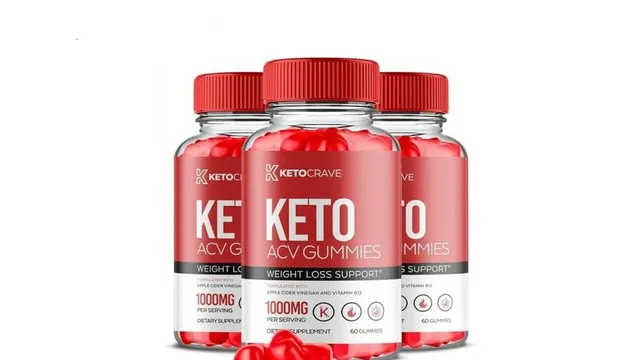Spotting a weight loss scam requires caution and skepticism. Look for extravagant promises and quick-fix solutions that sound too good to be true.
Scams often involve exaggerated claims and misleading before-and-after photos. Additionally, watch out for hidden fees and aggressive marketing tactics. The key is to do thorough research and consult reputable sources before committing to any weight loss product or program. In today’s weight loss industry, it’s crucial to be aware of potential scams.
Many companies use deceptive tactics to take advantage of people seeking a quick solution to their weight concerns. Understanding the red flags and knowing what to look for can help consumers make informed decisions and avoid falling victim to dishonest practices. This article will outline the key indicators of weight loss scams and provide valuable insights on how to protect yourself from fraudulent schemes. By staying informed and vigilant, you can navigate the weight loss market with confidence and avoid falling prey to misleading claims and manipulative strategies.

Credit: medium.com
Understanding Weight Loss Scams
Weight loss scams are rampant in today’s market, so it’s crucial to educate yourself on their common tactics. False promises and quick-fix solutions often lure people in, but it’s vital to understand why these scams exist. They typically prey on individuals’ desires for immediate results and exploit their insecurities. By creating a sense of urgency and offering unrealistic outcomes, scammers make their products seem appealing. Remember, sustainable weight loss requires dedication and a healthy lifestyle, so be cautious of any program or product that seems too good to be true. Keep in mind that achieving long-term results takes time and commitment, and there are no shortcuts to genuine, lasting success.
Signs Of A Weight Loss Scam
Spotting a weight loss scam is important to avoid wasting time and money. Be wary of claims for quick and easy results, as sustainable weight loss takes time and effort. Lack of scientific backing is a red flag; look for evidence-based strategies and products. Expensive and exclusive products may be more about marketing than effectiveness. Be cautious of any program or product that promises unrealistic outcomes. Always do thorough research and consult reputable sources before investing in any weight loss solution.
Uncovering Deceptive Tactics
Weight loss scams are rampant, and it’s crucial to recognize their deceptive tactics. Fake testimonials, for instance, are a common ploy used by these scammers. They often feature glowing reviews from supposedly satisfied customers, but these testimonials are often fabricated. Another red flag is the use of before and after photos. Scammers will Photoshop and manipulate images to make it appear as if their product or program has miraculous results. Additionally, hidden subscription charges are often buried in the fine print of their terms and conditions. These charges can lead to hundreds of dollars being drained from your bank account without your knowledge. So, it’s important to remain vigilant and sceptical when encountering weight loss offers that seem too good to be true.

Credit: malwaretips.com
Protecting Yourself From Weight Loss Scams
To protect yourself from weight loss scams, always research and verify the product and its claims thoroughly. Consult with healthcare professionals before trying any new weight loss program or product. Additionally, make sure to read customer reviews and testimonials to get an idea of other people’s experiences with the product.
Legal Actions Against Weight Loss Scams
Legal actions are being taken against weight loss scams, making it crucial to spot these scams to protect yourself. Learn how to identify red flags, such as exaggerated claims and miracle products, to avoid falling victim to deceptive practices.
| Be wary of weight loss products promising quick results. |
| Research thoroughly before purchasing any supplements or programs. |
| Check for approval from reliable sources like the FDA. |
| Avoid products with exaggerated before-and-after pictures. |
| Report any suspicious products to the Federal Trade Commission. |
| Many weight loss scams face legal action due to false claims. |
| Consumer protection laws aim to prevent deceptive advertising. |

Credit: www.amazon.com
Frequently Asked Questions Of How To Spot A Weight Loss Scam
What Does Fat Look Like In Urine?
Fat in urine may appear cloudy or milky, indicating a potential health issue. It can be a sign of kidney problems or disorders like proteinuria or chyluria, which require medical attention. If you notice unusual discoloration or consistency in your urine, consult a healthcare professional promptly.
What Tests Are Done For Unexplained Weight Loss?
The tests for unexplained weight loss may include blood tests, imaging scans, and endoscopy. Blood tests check for conditions like diabetes and thyroid issues. Imaging scans can detect tumors or organ problems, while endoscopy examines the digestive tract for potential issues.
What Is A Weight Loss Gimmick?
A weight loss gimmick is a product or method that promises quick and easy weight loss results, but often lacks scientific evidence and may not deliver long-term success. It’s important to be cautious of such gimmicks and focus on sustainable approaches to weight loss.
What Are The Signs That Your Body Is Burning Fat?
Signs of burning fat include increased energy, reduced hunger, improved workouts, and dropping weight gradually.
Conclusion
Spotting a weight loss scam is crucial in the crowded market filled with false promises. By being observant and educating ourselves, we can save both our money and health. Remember to beware of unrealistic claims, sketchy ingredients, and persuasive marketing tactics.
Always do thorough research, read customer reviews, and consult with healthcare professionals before trying any weight loss product or program. Prioritizing our well-being should be the utmost focus, making informed decisions about our health is the key to achieving long-term and sustainable weight loss.

